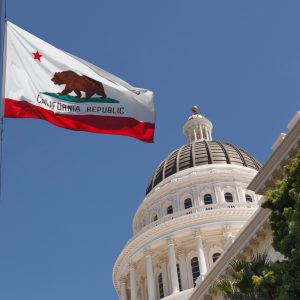
As we ushered in 2024, we also met with hundreds of new California laws and regulations. Last year, 1,046 bills that passed the State Legislature in the first half of the 2023–2024 session were sent to Governor Gavin Newsom’s desk. He signed 890 into law and vetoed 156 by the October deadline. Many of the laws, which went into effect on January 1 or will do so at a later date, impact the law enforcement profession, addressing myriad public safety issues involving firearms, hate crimes, the fentanyl crisis and more. In addition, other measures bring changes to the workplace, enhancing protections for and safeguarding the rights of workers.
LAAPOA has compiled a list of select laws that our members should be aware of. “We encourage our members to familiarize themselves with these and the hundreds of other laws that affect their lives both on and off the job,” LAAPOA President Marshall McClain says.
Firearms
SB 2: Concealed carry firearm restrictions
Limits the concealed carry of firearms in public places such as schools, government buildings, parks and places of worship, and requires applicants for CCWs to be 21 years old (raised from 18), have firearms training and pass background checks. However, as a result of the May v. Bonta litigation, an injunction is currently in effect prohibiting the enforcement of SB 2 provisions that restrict CCWs in some of the areas deemed as “sensitive places.”
AB 28: Tax on firearms and ammunition
Adds an 11% excise tax on the purchase of firearms and ammunition. Funds raised from the tax will go toward gun violence reduction measures and relieve medical and legal costs when treating patients of gun violence.
AB 92: Body armor restrictions
Prohibits persons barred from possessing firearms from purchasing or possessing body armor.
AB 455: Pretrial mental health diversion participants
Prohibits defendants participating in pretrial mental health diversion for a felony or specified misdemeanor charge from owning a firearm until they successfully complete diversion.
AB 732: Relinquishing firearms
Amends 2016’s Proposition 63 by requiring a defendant convicted of a felony or certain misdemeanors and not in immediate custody to relinquish their firearms within 48 hours.
AB 818: Protections for domestic violence survivors
Allows firearms to be confiscated when a domestic violence protective order is issued or at the scene of a domestic violence incident.
Holding Criminals Accountable
SB 14: Cracking down on child sex trafficking
Makes the trafficking of a minor for purposes of a commercial sex act a serious felony and imposes harsher penalties and sentencing enhancements for people convicted of such crimes.
AB 600: Resentencing procedures
Authorizes courts to recall a sentence and resentence a defendant in a criminal proceeding to align with any new laws.
AB 701: Increased penalties for fentanyl dealers
Enhances punishments for criminals convicted of selling or distributing high amounts of fentanyl, with an automatic addition of three years to the original sentence for dealing more than one kilogram and additional penalties by weight, topping out at an additional 25 years for trafficking in weights exceeding 80 kilograms.
AB 791: Postconviction bail
Prohibits a person convicted of an offense punishable by life without the possibility of parole from being released on bail.
AB 2282: Addressing hate crimes
Equalizes penalties for people who use burning crosses, Nazi swastikas and nooses as part of hate crimes, and increases the locations where they are banned to include K–12 schools, colleges, cemeteries, places of worship, places of employment, private property, public parks, public spaces and public facilities.
Other Public Safety Laws
AB 360: Banning “excited delirium”
Bars the use of the term “excited delirium” by coroners, medical examiners and physicians as a legitimate diagnosis or cause of death, and prohibits peace officers from using the term to describe individuals in incident reports.
AB 436: Cruising now permitted
Prevents law enforcement from pulling motorists over for cruising or driving modified cars (lowriders), and prohibits cities from passing anti-cruising/lowrider ordinances.
AB 452: Statute of limitations eliminated
Eliminates the time limit for the recovery of damages suffered as a result of childhood sexual assault for civil actions that arise on or after January 1.
AB 645: Speed camera pilot program
Allows the cities of Long Beach, San Jose, Oakland, Glendale, Los Angeles and San Francisco to establish a Speed Safety System Pilot Program. Violations captured by speed cameras are subject to civil penalties up to $25.
SB 673: Bringing home missing Black women and youth
Establishes the Ebony Alert, an emergency alert notification system, similar to the Amber Alert, used to help locate missing Black women and youth. It authorizes law enforcement agencies to request the activation of an Ebony Alert by the CHP and activates electronic highway signs to alert the public of the missing person.
Labor
SB 497: Equal Pay and Anti-Retaliation Protection Act
Amends California Labor Code sections 98.6, 1102.5 and 1197.5 to create a “rebuttable presumption of retaliation” if an employee experiences an adverse employment action within 90 days of engaging in any protected activity covered by the specified sections.
SB 616: More sick days
Guarantees five paid sick days a year, up from two days, for employees. It also extends nonretaliation and procedural protections to workers who are in a union.
SB 848: Leave for reproductive loss
Requires companies with five or more employees to provide bereavement leave to those experiencing miscarriage, stillbirth, failed IVF, failed adoption and other reproductive loss.
AB 2188: No discrimination for cannabis use
Bans employers from using hair or urine test results for marijuana in their decisions to fire or penalize workers, and bars employers from asking job applicants about prior cannabis use.
